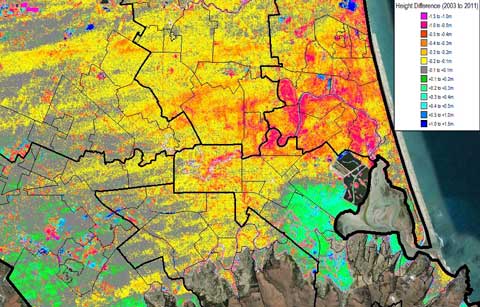 If you do nothing else today, take the time to read Jim Salinger’s account at The Conversation of the attempt by New Zealand’s little coterie of climate deniers to cast doubt on the country’s temperature record. It’s a useful summary of the cranks’ ludicrous effort, but Jim points out that it is just a small part of a much larger global PR campaign — drawing heavily on the strategies and tactics first used by the tobacco lobby — to undermine action to reduce emissions:
If you do nothing else today, take the time to read Jim Salinger’s account at The Conversation of the attempt by New Zealand’s little coterie of climate deniers to cast doubt on the country’s temperature record. It’s a useful summary of the cranks’ ludicrous effort, but Jim points out that it is just a small part of a much larger global PR campaign — drawing heavily on the strategies and tactics first used by the tobacco lobby — to undermine action to reduce emissions:
Earlier this month, the news broke that major tobacco companies will finally admit they “deliberately deceived the American public”, in “corrective statements” that would run on prime-time TV, in newspapers and even on cigarette packs.
It’s taken a 15-year court battle with the US government to reach this point, and it shows that evidence can trump doubt-mongering in the long run.
A similar day may come for those who actively work to cast doubt on climate science.
Frankly, that day can’t come soon enough.
Meanwhile, the latest news on the attempt by the men behind the trust used to bring the legal action — the NZ Climate Science Education Trust, fronted by Bryan Leyland, Terry Dunleavy and Doug Edmeades — to dump the costs of their failed case on the New Zealand taxpayer is that the official liquidator rates the “prospect of dividend” – that is, a payout by the trust — as “unlikely”. In the latest report (pdf) posted at the Companies Office ((Go to the Societies and Trusts Online section, click search register, then use the NZCSET registration number – 2539286 – to find the documents.)), the liquidator comments that he has only be able to contact one of the NZCSET trustees and that “he has thus far been co-operative with the liquidation”. If the other two trustees are not helpful, the liquidator warns that “they will be summonsed to attend a meeting to provide the necessary information”.
It may be that Christmas and summer holidays is slowing down the process, but if the NZCSET trustees are being deliberately unhelpful, I hope the Insolvency Service uses all of its powers to make them comply with the law. These men have wasted large amounts of taxpayer money pursuing their idiotic political agenda, and must be made to pay for their folly.
Like this:
Like Loading...

 If you do nothing else today, take the time to read
If you do nothing else today, take the time to read 